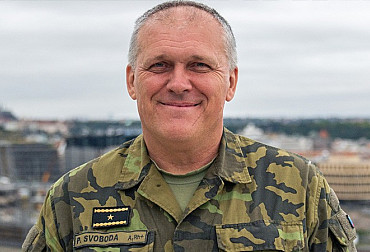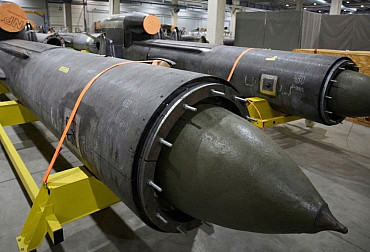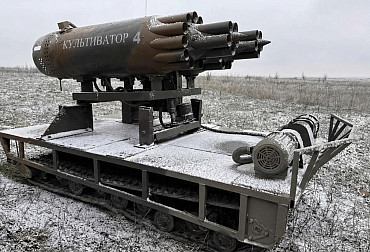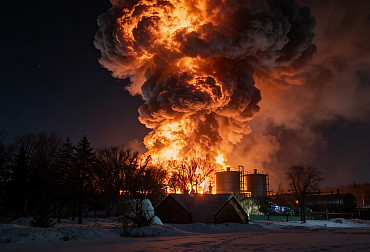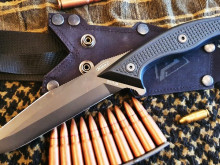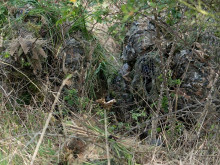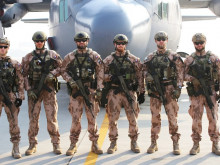General Bubeník had been in the top post of the Allied Chiefs of Medical Services Committee for three years
Brigadier General Zoltán Bubeník has concluded his three-year chapter at the head of the NATO Committee of Chiefs of Medical Services (NATO COMEDS). This is the highest possible position in this field, and also a very prestigious one within NATO. It also includes the role of Chief Medical Advisor to the NATO Military Committee. The Czechs are thus proving that thanks to their expertise they are able to take up the highest alliance positions at the top level.
General Bubeník has been a member of the COMEDS Committee since 2011, when he served as a deputy Czech representative, Colonel and later Brigadier General Božetěch Jurenka. Zoltán Bubeník became a full member in 2015 as a representative of the Czech Ministry of Defence and Chief of the Military Medical Service. He took over the position of COMEDS chairman after his election in the second half of 2018.
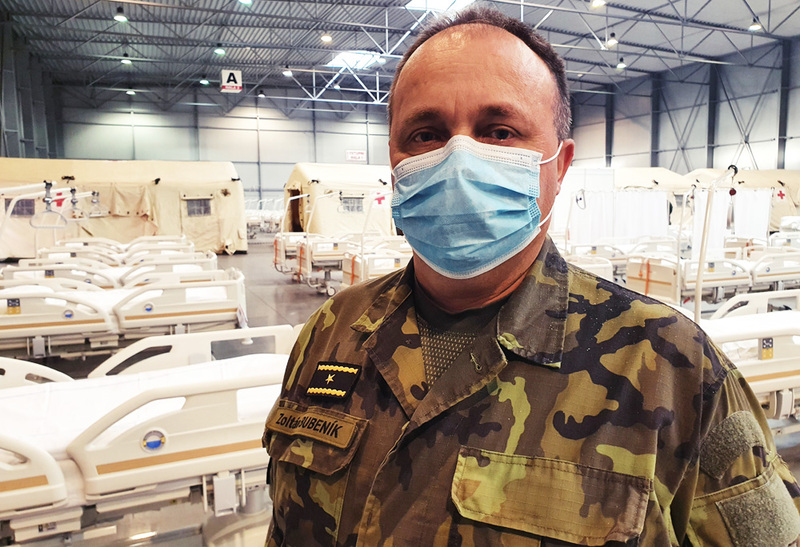 Picture: Brigadier General Zoltán Bubeník | Ministry of Defence of the Czech Republic
Picture: Brigadier General Zoltán Bubeník | Ministry of Defence of the Czech Republic
He has implemented all his projects
General Bubenik, otherwise the Director of the Military Medical Services Section of the MoD, advised here on the strategy for the development of the military medical services, support for deployment in operations and the long-term development plans of the Alliance. For example, he was able to present and implement the idea of the functioning of medical services, especially in terms of interoperability, standardisation or the alignment of training and teaching activities within working groups and expert panels. "Practically, we have managed to implement all our short and medium term plans and projects," summarises General Bubeník.
The accelerator was covid
Ironically, the pandemic situation presented General Bubeník's tenure with an opportunity to focus on areas and issues previously of a more long-term nature that have now become more pressing. For example, the supply of medical supplies and medicines, joint procedures for protecting soldiers, or preventing the spread of the virus in general. "In addition, the dynamically changing situation has made it necessary to keep the Alliance's top leadership regularly informed of actions planned on a daily, weekly and monthly basis, even with longer-term developments," General Bubeník notes.
Like everyone else, mainly remotely
In the covid era, NATO's command very quickly switched to communicating via videoconferencing. Meetings with the medical advisors of Allied Command Europe (SHAPE), Allied Command Transformation (ACT) and NATO's International Military Staff (IMS) were held regularly, as were COMEDS plenary meetings. "Regardless of covid, we always had accurate and timely information on all areas of military health management. Thus, my own experience confirms that the inability to physically meet does not stop development. This was also true for our committee," he comments on the specifics of his chairmanship.
Key civil-military cooperation
According to Bubenik, the covid pandemic has created a very specific situation that has brought about a crisis with a hybrid character on an unprecedented scale. A crisis with implications for education, the global and national economy, which showed the possibilities of influencing people's thinking and behaviour through the media and social networks. "Civil-military, and in some countries even military-civilian cooperation, played a key role in it," General Bubenik notes. "It was the military in general, and medical service members in particular, who were central in working with civilian forces, not just in assisting medical facilities and social care centers." In relation to pandemic management, General Bubeník said that we must not forget, above all, the area of advice and interaction in the field of crisis management, where members of the military health service are also active. In his opinion, in the medium and long term, we must now focus on all the knowledge and experience gathered over the last two years. We cannot predict further pandemic developments, but we can incorporate our knowledge into strategic concepts, apply it and use it. "I dare to say that also thanks to our diligence, the launch of the NATO Medical Support Capstone Concept (NMSCC), a follow-up to the NATO Warfighting Capstone Concept (NWCC), was successful under our leadership. This is a long-term strategic concept for Alliance medical support, both on the ground and in deployment, which also extremely underlines civil-military cooperation in the field of healthcare," added General Bubeník.
What is to follow?
General Bubeník will continue to serve on the committee as a national representative. "I have been elected, along with colleagues from France, Germany, Slovenia and the UK, to the COMEDS Committee for the Dominique Jean Larrey Award, the highest award in military healthcare. He was a famous French surgeon and introduced the principles of war surgery and especially medical displacement during the Napoleonic Wars. I very much appreciate this award," comments General Bubeník. "As far as the pandemic is concerned, we all wish it to recede soon. We are all gradually processing the experience of the previous period in order to design and recommend procedures for the next period together with the civilian medical authorities at the national level. And we are trying to translate all this into Alliance procedures and recommendations," informs Bubenik. Currently, the COMEDS committee has been tasked by the IMS to develop a strategic paper on civil-military cooperation in the health sector. The task was entrusted to a working group, on which General Bubeník serves and specializes in CBRN. The document, entitled "Formal Bioresponse", is intended to be a vision for the near term. "The position of Chairman of the Committee of Chiefs of Medical Services is the highest benchmark I could achieve. I will now seek to offer my expertise in addressing issues in areas that I have been involved in for a long time, and that is the medical support of military operations in relation to the command and control system. Simply the so-called medical leadership, which is not yet described anywhere in a clear and specific way," reveals Bubeník.











